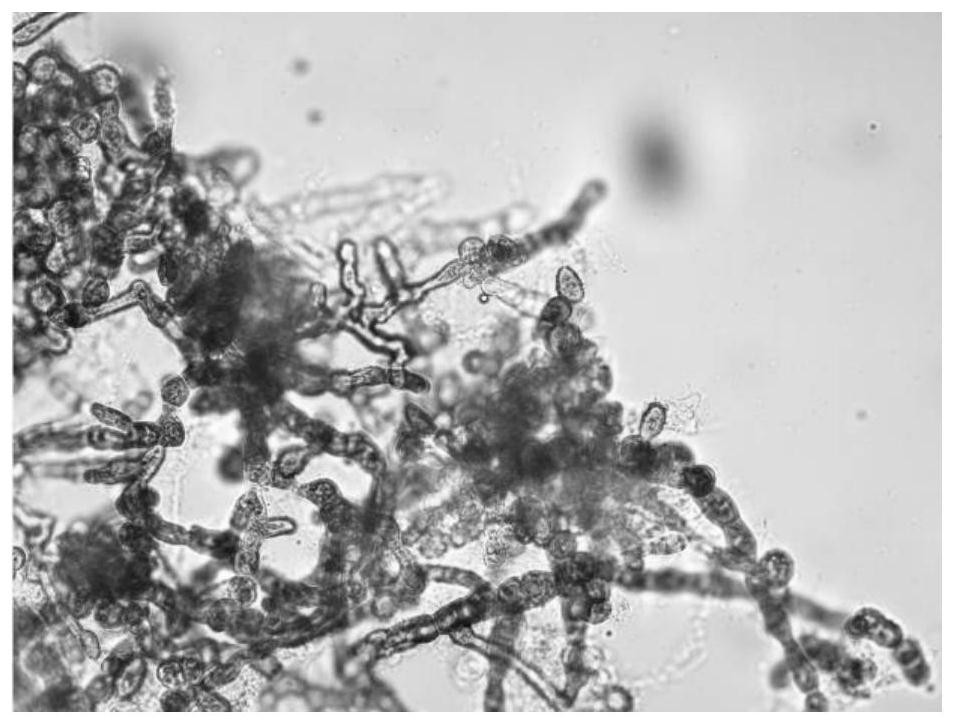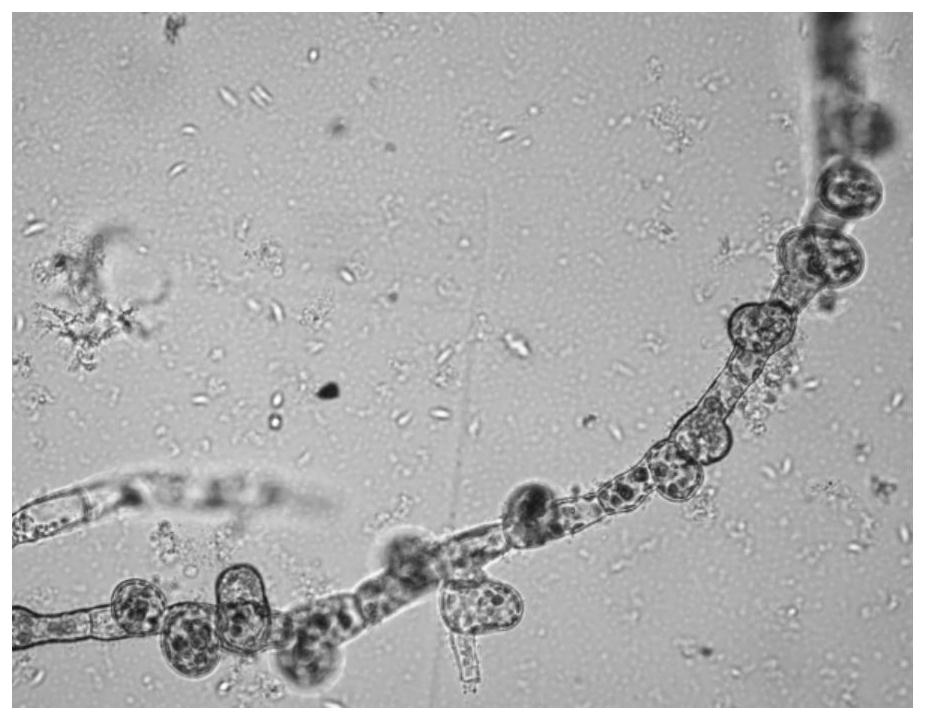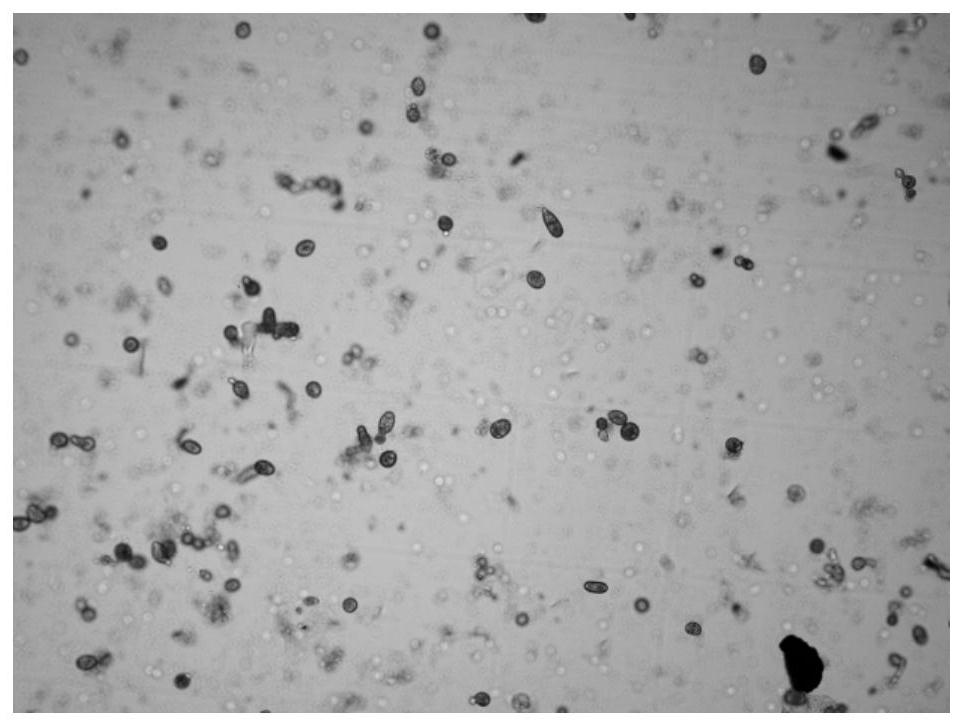A method for reducing the deformity rate of kelp germplasm parthenogenetic sporophytes
A technology of young sporophytes and kelp, which is applied in the field of kelp breeding, can solve the problems of high parthenogenetic deformity rate, environmental conditions that do not meet the special requirements of parthenogenetic growth, chromosome loss, etc., and achieve shortened ovulation time, good synchronization, and ovulation high rate effect
- Summary
- Abstract
- Description
- Claims
- Application Information
AI Technical Summary
Problems solved by technology
Method used
Image
Examples
Embodiment 1
[0032] Embodiment 1: promote kelp germplasm to discharge ovum
[0033] 1) Prepare germplasm material for parthenogenetic development
[0034] The female germplasm filaments of kelp (Saccharina japonica) with dark brown color and no algae pollution were selected from the germplasm bank, and part of the germplasm was poured out for induction materials. Those used to induce germplasm were placed in 500ml sterile sea water.
[0035] 2) Pre-treatment for induction
[0036] The germplasm used for induction was placed in an induction incubator 24 hours before induction, the culture temperature was 15±1°C, the light source was a fluorescent tube, and the light was 1000lx, increasing by 500lx per hour until 6000±200lx.
[0037] 3) Ovulation induction treatment
[0038] The germplasm was crushed with a tissue grinder at 1500 rpm for 30 seconds, and repeated once. Then filter three times with a single-layer 500-mesh sieve to obtain filament fragments with a length of 3-6 cells.
[0...
PUM
 Login to View More
Login to View More Abstract
Description
Claims
Application Information
 Login to View More
Login to View More - R&D
- Intellectual Property
- Life Sciences
- Materials
- Tech Scout
- Unparalleled Data Quality
- Higher Quality Content
- 60% Fewer Hallucinations
Browse by: Latest US Patents, China's latest patents, Technical Efficacy Thesaurus, Application Domain, Technology Topic, Popular Technical Reports.
© 2025 PatSnap. All rights reserved.Legal|Privacy policy|Modern Slavery Act Transparency Statement|Sitemap|About US| Contact US: help@patsnap.com



